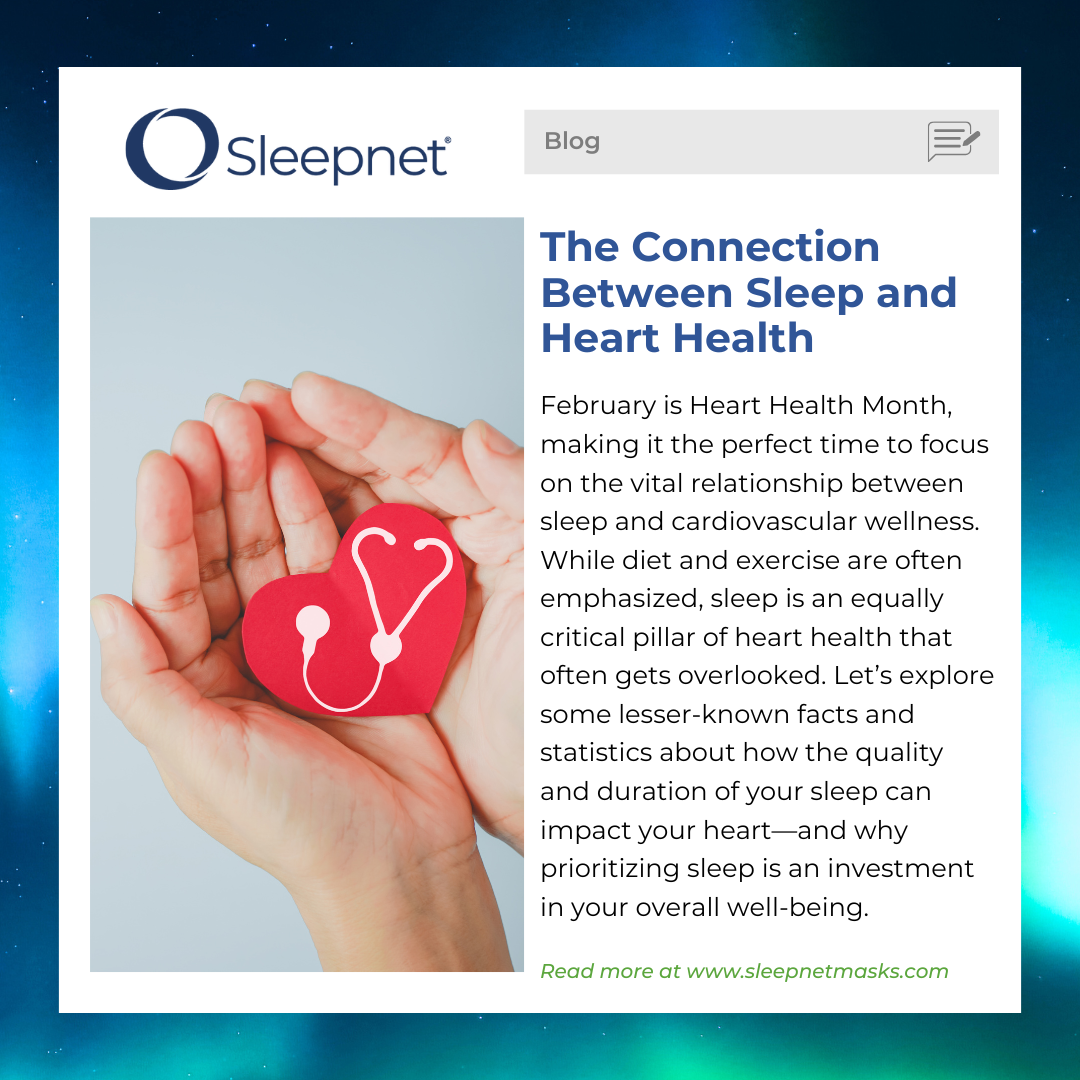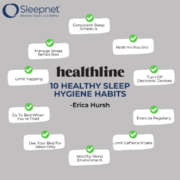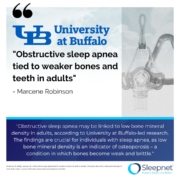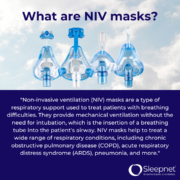The Connection Between Sleep and Heart Health
February is Heart Health Month, making it the perfect time to focus on the vital relationship between sleep and cardiovascular wellness. While diet and exercise are often emphasized, sleep is an equally critical pillar of heart health that often gets overlooked. Let’s explore some lesser-known facts and statistics about how the quality and duration of your sleep can impact your heart—and why prioritizing sleep is an investment in your overall well-being.
Sleep Deprivation and Heart Health
Chronic sleep deprivation is more than just feeling tired—it can have serious consequences for your cardiovascular system. Research has shown that participants who slept less than six hours were 27% more likely to develop atherosclerosis, a gradual buildup of plaque in the arteries, compared to those who slept seven to eight hours (American College of Cardiology 2019, “Sleeping Less than Six Hours May Increase Cardiovascular Risk). Poor sleep interferes with the body’s natural processes, including blood pressure regulation and inflammation control, both of which are essential for maintaining heart health.
Sleep Apnea: The Silent Heart Risk
Obstructive sleep apnea (OSA) is a widespread yet often undiagnosed sleep disorder, with an estimated 936 million adults worldwide experiencing mild to severe OSA (National Council on Aging 2024, “Sleep Apnea Statistics and Facts You Should Know”). OSA occurs when the airway becomes blocked during sleep, leading to intermittent pauses in breathing that can disrupt both sleep quality and overall health.
This condition is strongly associated with serious cardiovascular risks, including hypertension, arrhythmias, heart attacks, and heart failure. Left untreated, these breathing disruptions lower oxygen levels in the blood, placing undue strain on the heart. Alarmingly, OSA has been shown to increase the risk of heart failure by 140%, stroke by 60%, and coronary heart disease by 30% (PubMed Central 2021, “Association and Risk Factors for Obstructive Sleep Apnea and Cardiovascular Diseases: A Systematic Review).
Fortunately, addressing sleep apnea through treatments such as CPAP therapy can help reduce these risks and improve both sleep quality and heart health.
The Role of Circadian Rhythms
Your heart works on a rhythm, too. Disrupted circadian rhythms, often caused by irregular sleep patterns or shift work, can significantly increase the risk of cardiovascular issues. According to a study, “not sticking to a regular bedtime and wake-up schedule—and getting different amounts of sleep each night—can put a person at higher risk for obesity, high cholesterol, hypertension, high blood sugar, and other metabolic disorders. In fact, for every hour of variability in time to bed and time asleep, a person may have up to a 27% greater chance of experiencing a metabolic abnormality,” (Neuroscience 2019, Study Links Irregular Sleep Pattern to Metabolic Disorders).
Maintaining a consistent sleep schedule helps regulate your internal clock, ensuring your body’s processes—such as hormone release and blood pressure control—function as intended.
Lesser-Known Sleep and Heart Health Insights
- The “Golden Hour” for Bedtime: Research indicates that falling asleep between 10 PM and 11 PM may be the optimal window for promoting heart health. According to a study, “compared to sleep onset from 10:00 to 10:59 PM, there was a 25% higher risk of cardiovascular disease with a sleep onset at midnight or later, a 12% greater risk for 11:00 to 11:59 PM, and a 24% raised risk for falling asleep before 10:00 PM” (European Society of Cardiology 2021, “Bedtime Linked with Heart Health). By aligning your bedtime with this “golden hour,” you can support your heart’s natural rhythms and reduce the risk of cardiovascular complications.
- Insomnia and Heart Disease: Insomnia isn’t just frustrating; it can increase your risk of heart attack by up to 69%. Addressing sleep issues through cognitive behavioral therapy, relaxation techniques, or professional intervention can mitigate this risk (Healthline 2023, Insomnia May Put You at a Higher Risk of Heart Attack).
- Nap Wisely: While short naps can boost energy, long or irregular daytime naps might negatively impact heart health. “The analysis found that long naps (more than 60 mins) were associated with a 30% greater risk of all-cause death and 34% higher likelihood of cardiovascular disease compared to no napping,” (News Medical 2020, Longer naps associated with higher risk of death and cardiovascular disease).
Tips for Better Sleep and a Healthier Heart
- Create a Sleep-Friendly Environment: Keep your bedroom cool, quiet, and dark. Invest in comfortable bedding and consider a white noise machine if needed.
- Stick to a Routine: Go to bed and wake up at the same time every day, even on weekends.
- Limit Stimulants: Avoid caffeine, nicotine and alcohol close to bedtime, as they can interfere with your ability to fall and stay asleep.
- Prioritize Relaxation: Wind down with calming activities like reading, meditation, or gentle stretches before bed.
- Address Sleep Disorders: If you suspect you have a sleep disorder like sleep apnea, consult a healthcare professional to explore treatment options.
Sleepnet’s Role in Heart Health
At Sleepnet, we understand the profound connection between sleep and overall health, especially when it comes to your heart. Our range of high-quality masks are designed to provide comfort and efficacy for those needing CPAP or NIV therapy. By helping you achieve restorative sleep, we’re here to support your journey to better heart health.
This Heart Health Month, take a moment to assess your sleep habits and make adjustments where needed. A healthier heart starts with better sleep!









